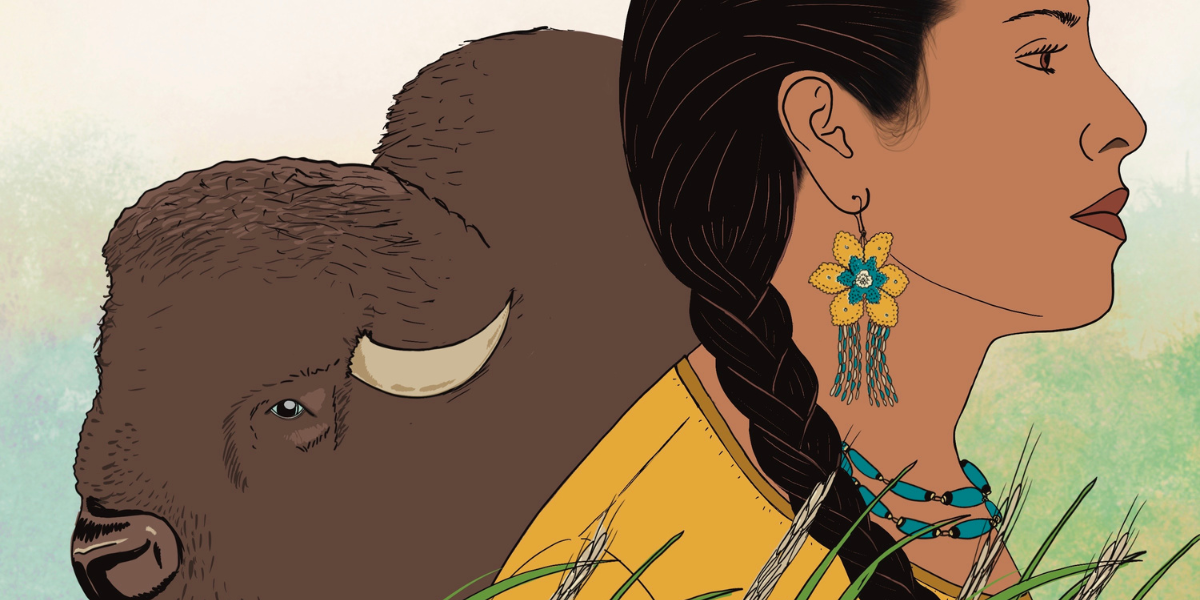In collaboration with AgroecologyNow at the Centre for Agroecology, Water and Resilience (CAWR) of the University of Coventry (UK), we are launching a new episode of our podcast mini-series ‘A Journey through Feminist Agroecology’.
In the first episode, we explored the question of what food systems would look like if they were based on feminist values. In this second episode, we continue our journey, exploring food sovereignty and indigenous feminisms in the context of North America. We are guided by Jessica Milgroom (AgroecologyNow) and her colleague Csilla Kiss who interviewed three amazing Native American women.
Listen to the second episode:
First, Lisa Ironcloud tells us about the art of butchering buffalo, her personal journey of reconnection with indigenous foods, and how this led her to start supporting other people, especially women, in similar processes.
“I wanted to find out more about our (traditional) foods, not understanding at that time, that I was gonna also find myself in that process (…) understanding what it meant to be Lakota, understanding what it meant to be a female (…) I started questioning a lot of the roles and what they say a woman should be.(…)”
“We really disconnected from our foods (…) Our food is our belly button because things start to make sense whenever we get back into it and live it”
Priscilla Settee then provides us with insights into the historical legacy behind the discrimination and intersectional, colonial violence against food and women. Destruction of indigenous food systems and of indigenous women were two powerful weapons used by colonists to conquer the continent.
“The colonizers understood the strength of women and so they purposely went in to undermine that. (…) Destroying the family, breaking up communities, and brutalizing indigenous women. That is a really powerful legacy that we are still deconstructing.”
Finally, Simone Senogles talks to us about how indigenous feminism is intertwined with food, land, spirituality and health and about the complexity of feminism in indigenous food sovereignty movement
“In indigenous feminisms there is a high priority on responsibility more than rights. What is our responsibility to ourselves, to each other, to mother earth and the coming generations and even our ancestors. (…) We know that for food sovereignty to exist, there has to be intact relationships of respect, reciprocity, responsibility. So, it fits very well with an indigenous worldview and indigenous feminisms (…) Everyone who knows about food sovereignty, agroecology know that it can’t work unless there is healthy, respectful, equitable relationships.”
The stories of these three amazing women allow us to better understand how indigenous food memories are braided in with experiences of systemic violence against women, as well as people who identify to be non-binary and two spirit.
More about the interviewees
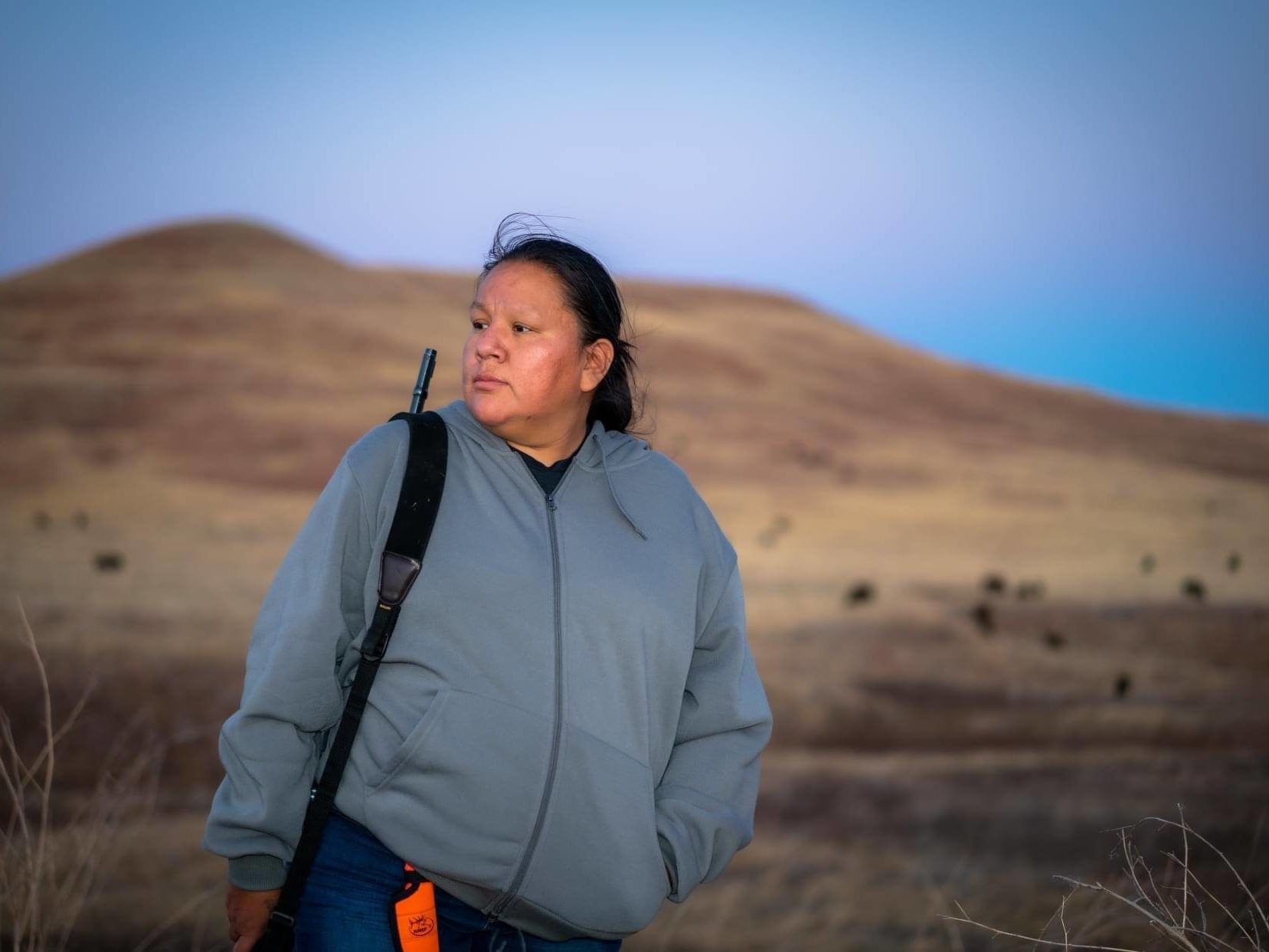
Lisa Iron Cloud (South Dakota, USA) is Oglala Lakota living in South Dakota, US. She is teaching indigenous women and girls how to butcher buffalo according to tradition and to forage for, preserve and cook with indigenous foods. She shares her knowledge and skill to help heal deep fractures created by colonialism within indigenous communities and to reclaim indigenous women’s place in society.
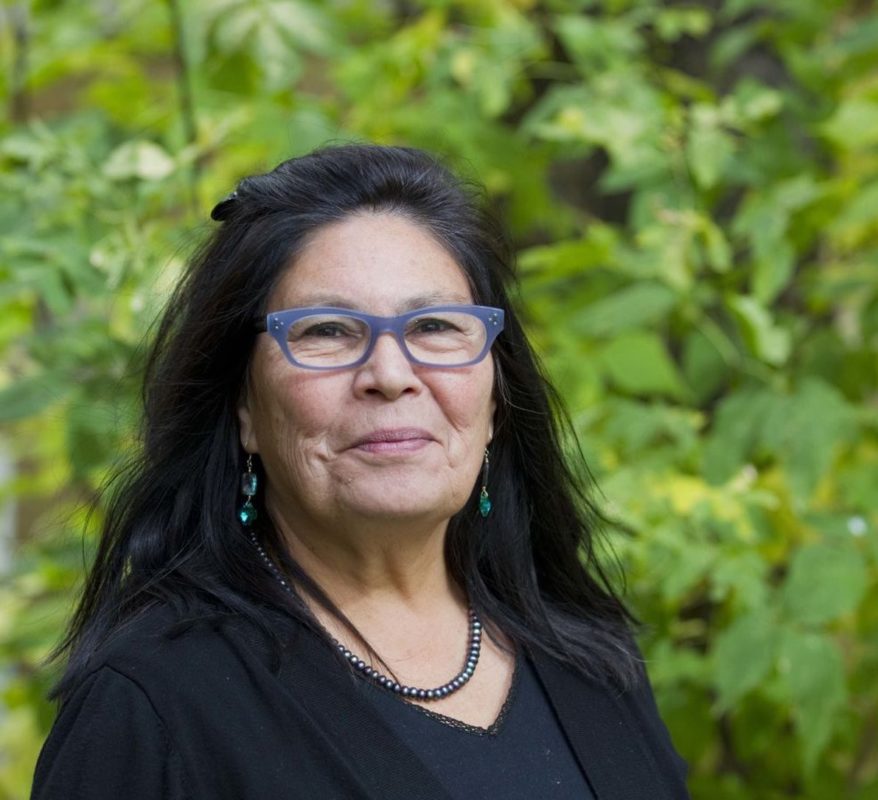
Dr. Priscilla Settee (Cumberland house, Canada) is a First Nations (Swampy Cree) activist for Indigenous rights, women’s rights and environmental rights living in Canada. She is Professor Emerita of Indigenous Studies and the Interim Vice-Dean Indigenous in the College of Arts and Science at the University of Saskatchewan, Canada. Her research interests include Indigenous knowledge systems, biodiversity protection, Indigenous food and politics, the impact of globalisation on Indigenous Peoples, Indigenous women’s rights, Indigenous food sovereignty and trafficking of women and children.
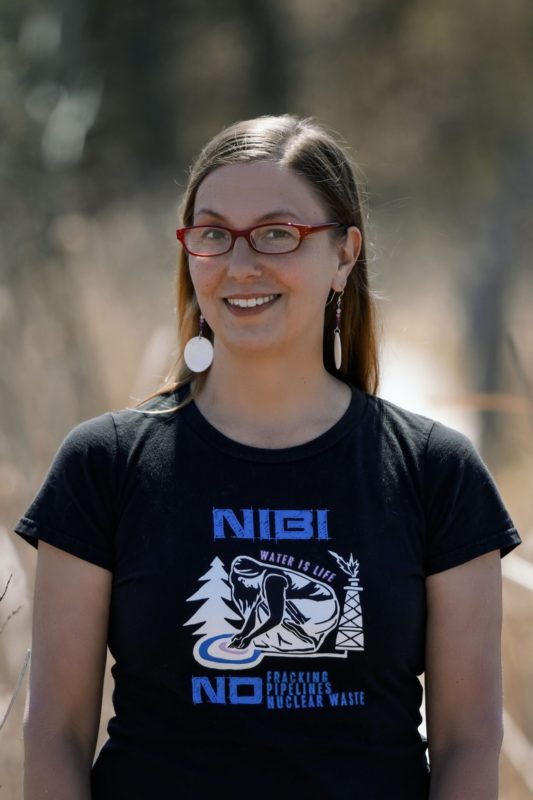
Simone Senogles (Northern Minnesota, USA) is Anishinaabe from the Red Lake Nation in Northern Minnesota, US. She is a member of the leadership team at the Indigenous Environmental Network (IEN) where she has worked for over 20 years. Her work focuses on indigenous women’s leadership and the importance of lifting up their work and power. She has been part of the convening committee for a series of webinars on indigenous feminisms. IEN is an indigenous led and operated Environmental Justice organization working with indigenous communities and nations in the US and Canada. IEN works on climate justice, sustainable communities, a just transition away from a fossil fuel economy and more.
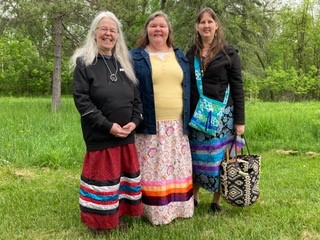
In the episode there are also the Oshkii Giizhik singers. They are a community-based group of Native American women singers from Minnesota. They reclaim Ojibwe songs and write some of their own for today’s times. They sing to build community and empower women to use their voices and raise awareness about issues that native women face. Singers on the episode are: Lyz Jaakola, Rebecca Gawboy, Darcey St. John.
The podcast is also available on Spotify and other major listening platforms.
Illustrations by: Virginia Pineda Ogalla.
Special thanks to: Lisa Ironcloud, Priscilla Settee, Simone Senogles, the Oshkii Giizhik singers, AgroecologyNow and BulleMedia.
Photo credits: David Stobbe and Nedahness Greene.
 This podcast series was co-funded by the European Commission. Its contents are the sole responsibility of the authors and do not necessarily reflect the views of the European Union.
This podcast series was co-funded by the European Commission. Its contents are the sole responsibility of the authors and do not necessarily reflect the views of the European Union.

